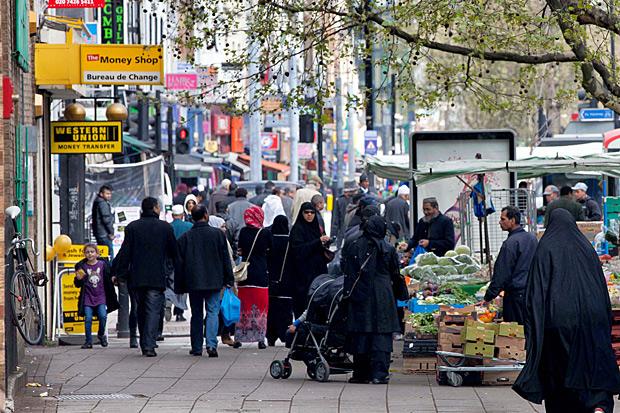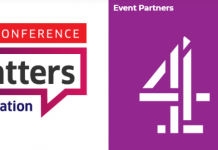By Michael Keating
Over the last couple of years in Tower Hamlets, I have been supporting the development of a health and social care partnership embracing acute, primary and mental health services, the local authority and the voluntary and community sector. Reflecting its strong local leadership and a track record of delivery the partnership was awarded Vanguard status by NHS England with additional resources to explore new models of care although this has to be ‘at pace’. Strong and trusting relationships are at the heart of any successful partnership but achieving and maintaining them does not happen overnight.
At its core the partnership is committed to creating person-centred services by working with local communities to deliver the best health and social care possible for Tower Hamlets. One idea to help do this was to create an advisory and consultative forum involving patients, carers, staff, the voluntary and community sector and other partners to play a role in the partnership’s governance. Throughout 2016 a group of volunteers from each of these constituencies participated in four externally facilitated workshops to pilot the concept of a ‘stakeholder council’.
- The first highlighted the consistency in the aspirations of both providers and users for the future of more integrated community health services. Despite this there remained a level of scepticism about the extent to which senior leaders would be willing in practice to listen to and act on the views of stakeholders.
- Debate at the second focused on the challenges of getting the right input from stakeholders and being clear about their roles and responsibilities. It was evident that building confidence and the ability to move beyond traditional attitudes and behaviours would be vital.
- At the third participants described the ‘hat’ they were wearing when they came to the workshops (the organisation they worked for, the issue they cared most about, the type of volunteer they were, etc.) and the added value they wanted to bring to the table. This underlined the strength embodied in a diverse range of voices willing to use their personal, organisational and political experience collaboratively to make a real difference.
- Taking self-care as topic that needs total buy-in to succeed, the final workshop explored how to be a ‘critical friend’ and came up with proposals about roles and responsibilities, draft terms of reference and ideas about where a stakeholder council should sit in the governance structure.
The potential unearthed by the workshops is the creation of an arena to explore co-production supported by changing traditional behaviours and underpinned by more trusting relationships. The workshop debates echoed those taking place in other parts of the system, particularly the aspiration to shift the focus from ‘engaging’ and ‘involving’ residents towards leadership and embedding a culture that empowers and enables citizens to take greater control in shaping services. Making this happen will depend on a more open and flexible approach from staff, the support of the voluntary and community sector and the recognition that other factors such as housing and the environment have a crucial impact on health and wellbeing.
The stakeholder council workshops provided a glimpse of how to realise the opportunities but inevitably there are risks and three particularly stood out.
“I want to help get care right first time, every time!”
From the outset the intention was to recruit four volunteers from each of the constituent parts (patients and carers, staff, the voluntary and community sector and other partners) supported by the engagement and involvement leads from each partner to be involved in every workshop but this proved impossible. The workshops did not always compete successfully with the other demands of day-to-day life and work. It was therefore difficult to maintain consistency and often necessary to repeat discussions already undertaken. Making sure the experience of participation is enjoyable and the outputs seen as a vital element of local decision-making are important to address this.
“I’m here to share some scepticism but I’m keen to try and improve the system”
Although the desire of the workshop participants for more localised and personalised services is broadly the same as those of senior leaders they were often unconvinced their views would have any influence. Making sure the stakeholder partnership is not simply perceived as a ‘tick box’ exercise is vital. This includes strengthening connections across the system and working out how a ‘critical friend’ role makes a positive difference in practice.
“I’m passionate about bringing together different voices to build better services”
A fundamental driver for piloting the stakeholder council was to strengthen accountability by having a more open and less defensive debate about local challenges. This meant trying to move away from established patterns of behaving – whether it be the ‘moaning’ service user, the ‘look on the bright side’ provider, the ‘hard done by’ third sector partner or the ‘that’s nothing to do with us’ response from other services. Getting it right requires sustained support and investment, recognising different perspectives but striving for the common ground on which to make tough decisions. Putting in place understandable outcome measures, achieving a truly collaborative community health service, delivering the ambitions of the health and wellbeing strategy and working out how to create better population health are the local priorities that could benefit from this approach.
The next steps are currently being debated. What is inescapable is that, in a political environment seeking easy answers, the future delivery of health and social care is becoming ever harder. Creating the relationships that would allow us to explore this challenge more openly is not straightforward but piloting a stakeholder council of critical friends with equal voices has offered a glimpse of how this might be done. Whether it can be at the pace required is the next challenge.









